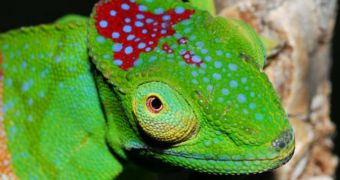A massive island located to the east of the African coast is proving to be one of the most interesting hot spots for finding new species. Since 1999, experts managed to identify more than 615 new species living on the island.
A new species is discovered in Madagascar, on average, about once per week. This rhythm has been sustained for the past 12 years, and it shows no signs of slowing down. The island is the fourth-largest in the entire world.
One of the main reasons why so many of the species found in Madagascar are indigenous to the island, and can be found nowhere else in the world, is that the landmass separated from both the African and Indian subcontinents between 80 and 100 million years ago,
This provided sufficient time for evolution to drive species here in new directions. The process also led to an increased diversity, experts say, and scientists are currently analyzing it. The species that were discovered here over the year are described in a new report from the conservation organization WWF.
“All the species are so special, and many are unique to Madagascar. They don't exist anywhere else in the world,” explains the conservation director at WWF Madagascar, Nanie Ratsifandrihamanana, in an interview for OurAmazingPlanet.
All in all, researchers found some 385 new plants, 42 invertebrates, 41 mammals, 61 reptiles, 17 fish and 69 amphibian species on the island, and the pace of discovery continues unabated. In fact, experts say, discoveries could from now on be made at an increasing pace.
The advent of modern technologies is making it easier for researchers to code DNA, and conduct other studies meant to tease out new species. “The sad part is that there could be many species that will disappear before they are discovered,” the WWF expert said.
Madagascar is currently one of the endangered areas of the world, with numerous species threatened or extinct due to poaching, encroaching human habitats and other such factors. More than 90 percent of the forests covering the island have already been lost.
“We're really trying to empower local communities so they are better managers of the resources, because they are the ones who make the daily decisions for how they will use the forest,” Ratsifandrihamanana concludes.

 14 DAY TRIAL //
14 DAY TRIAL //